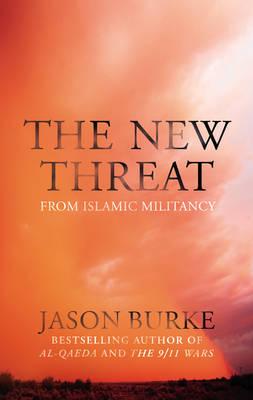Jason Burke, veteran correspondent and author of the bestselling Al-Qaeda, identifies the population explosion in countries such as Egypt and Tunisia as a major factor in the rise of Islamic militancy in his new book The New Threat From Islamic Militancy. Described as important and impressive by The Guardian newspaper, the book describes how millions in their 20s, unable to find work or a partner, are drawn by the promise of a purpose, a thrill and, yes, sex. Fight well, make money, get yourself a girl. Isis is not the first to offer this, but it has taken it to a new level. “Terrorism,” the self-proclaimed caliph of Isis has said, “is to worship Allah as He ordered you.” From Syria to Somalia, from Libya to Indonesia, from Yemen to the capitals of Europe, Islamic militancy appears stronger, more widespread and more threatening than ever.
Guardian reviewer Anthony Sattin writes: “As Burke’s important and impressive book makes clear, what is happening to the benighted people of Iraq and Syria, and Libya, and Egypt, and of many other countries, touches us all and, increasingly, in ways we cannot ignore. If you have felt a frisson at the sight of heavily armed police and army at our railway stations and airports, then, according to Burke, you are already a victim of terror, though there is much more to scare you.
“In a crowded field, The New Threat from Islamic Militancy is the most accessible and up-to-date analysis of the development of Islamic militancy. It gives a clear and convincing account of the evolution through the 20th century of the philosophy that seeks to justify this particular brand of terror. It looks at the consequences of the world-changing events of the late 1970s, from the Iranian revolution, to the immense wealth generated by oil price hikes, to the Soviet invasion of Afghanistan: Osama Bin Laden, after all, was a US-funded participant in the fight against the Russians. It considers the consequences of the misguided Iraq wars. It tracks the collapse of regimes in the Arab spring of 2011, the shift of regional power bases and the widening gulf between Sunni and Shia. But instead of throwing light on the deceptions or ineptitudes of our own leaders in all this – and how hollow does George W Bush’s triumphal 2003 “mission accomplished” speech sound now? – Burke keeps his sights fixed on the movements of Islamic militants. The view is consistently fascinating.
“Osama Bin Laden did not attack the World Trade Center because he wanted to kill people but because he was failing to attract attention for his pronouncements. 9/11 was tactical. It may also have outstripped even his ambitions because after it, the world’s media was only too happy to echo every word he spoke. Perhaps more significant, since then, we the world’s bystanders have known that anything could happen at any time, anywhere. One of the successes of Burke’s narrative is the way Bin Laden and al-Qaida come across as old-fashioned, at least in comparison with the current leader of Isis, al-Baghdadi, whose speech in the newly captured Iraqi city of Mosul last year moved the millennial clash of civilisations into another dimension. Bin Laden had looked with longing at what he saw as the golden age of the long-departed caliphate. Al-Baghdadi trumped him by declaring that Allah had chosen him to be the new caliph. Al-Baghdadi’s publicists uploaded footage of the speech on to the internet immediately after he had spoken.”
Drawing on almost two decades of frontline reporting as well as a vast range of sources, from intelligence officials to the militants themselves, renowned expert Jason Burke cuts through the mass of opinion and misinformation to explain dispassionately and with total clarity the nature of the threat we now face. He shows that Islamic militancy has changed dramatically in recent years. Far from being a ‘medieval’ throwback, it is modern, dynamic and resilient. Despite everything, it is also comprehensible. The New Threat provides what you need to know to make sense of this complex landscape. It is essential reading if we are to understand our fears rather than succumb to them, to act rationally and effectively, and to address successfully one of the most urgent problems of our time.



